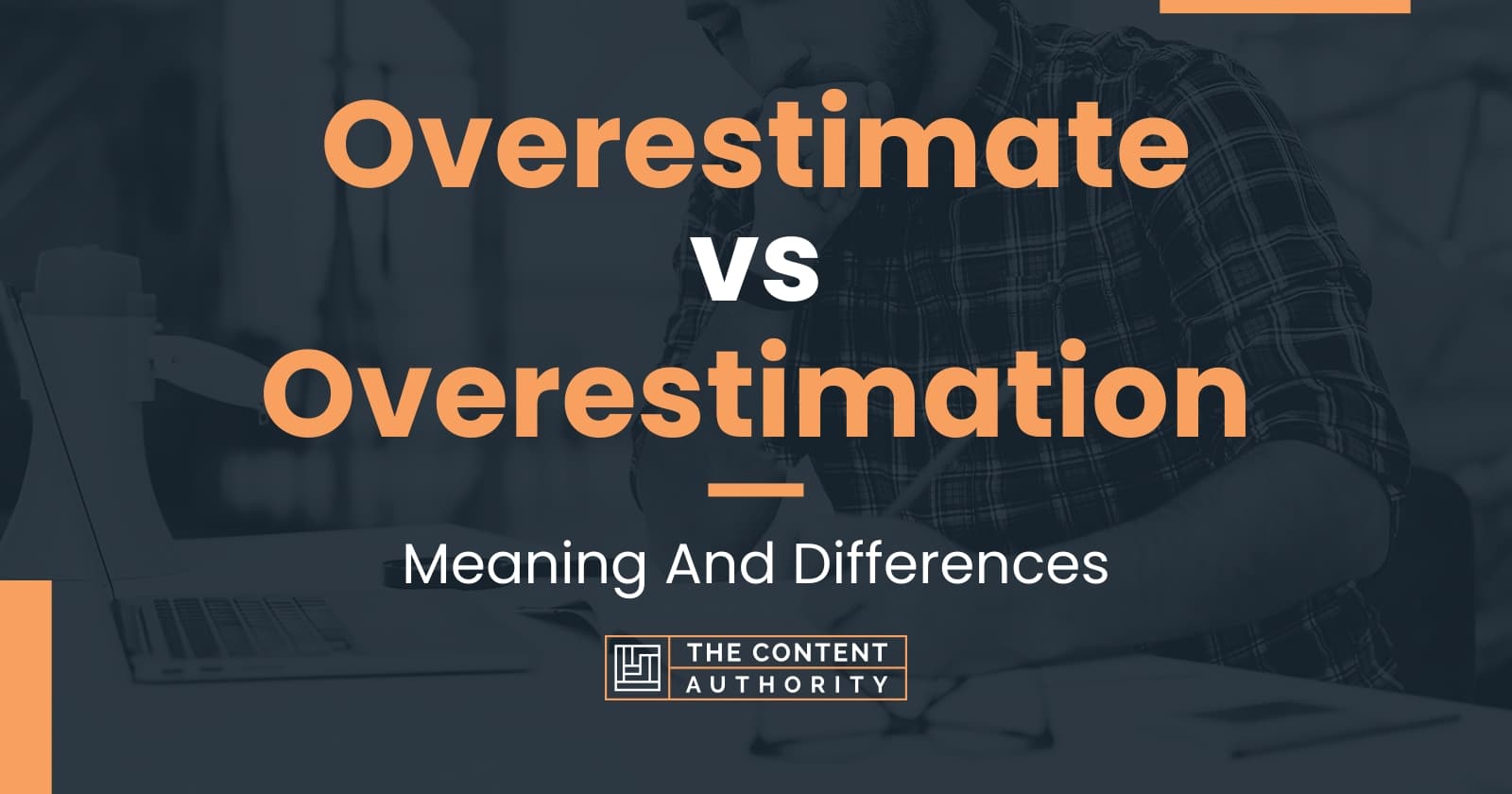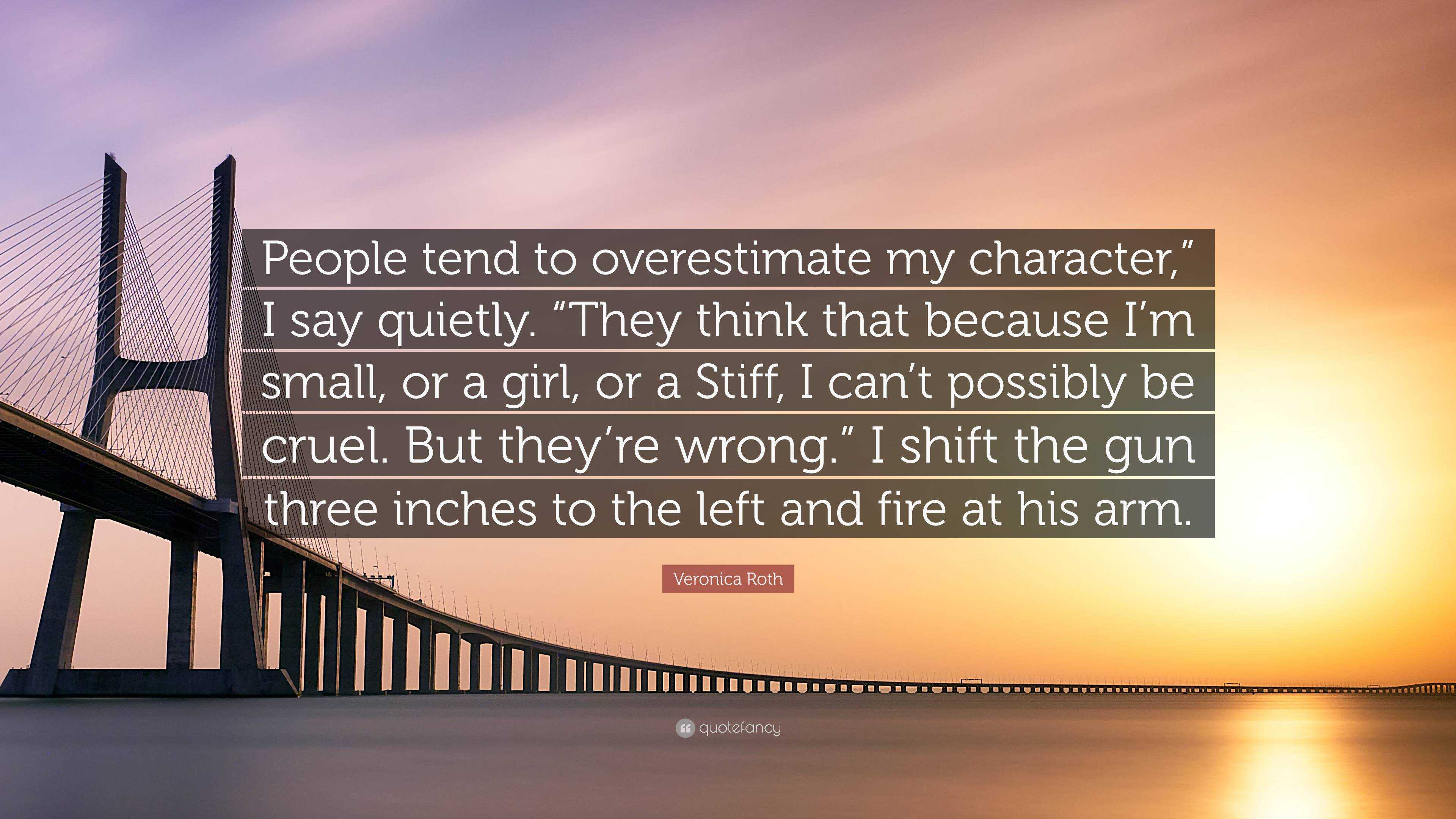Have you ever found yourself in a situation where you thought you were ready for something, but reality hit you hard? Well, that’s what happens when we overestimate. The New York Times (NYT) has been talking about this phenomenon, and it’s worth diving into. Overestimate say NYT, and we’re here to unpack what that means. Let’s get started, shall we?
Overestimating is like thinking you can run a marathon without training or believing you’re the next Picasso after drawing a stick figure. It’s human nature to have high hopes, but sometimes those hopes can lead us astray. The NYT has been shedding light on how overestimation affects our lives, and it’s fascinating stuff.
From personal development to professional growth, overestimating can either push you forward or hold you back. In this article, we’ll explore what overestimating really means, how it impacts our decisions, and why the NYT is so interested in this topic. Stick around, because this is gonna be a wild ride.
Read also:Unveiling Marco Antonio Firebaugh The Man Who Ignites Passion And Inspiration
What Does It Mean to Overestimate?
Overestimating isn’t just about being overly confident; it’s about misjudging your abilities, resources, or circumstances. Imagine you’re planning a big project at work, and you think it’ll take two weeks when in reality, it takes four. That’s overestimation in action. According to the NYT, this happens more often than you’d think.
Here are some quick examples:
- Thinking you can ace a test without studying.
- Predicting you’ll finish a book in a day when it takes you a week.
- Believing you can handle a workload that’s way beyond your capacity.
It’s not always bad, though. Overestimating can sometimes push you to achieve more than you thought possible. But if you’re consistently overestimating, it can lead to burnout, frustration, and missed opportunities.
Why Does Overestimation Matter?
Overestimation matters because it affects everything from personal goals to global policies. The NYT has pointed out that governments, businesses, and individuals all fall prey to this cognitive bias. When you overestimate, you set yourself up for failure—or at least a reality check. But why does it happen?
One reason is optimism bias. We tend to believe that things will work out in our favor, even when evidence suggests otherwise. Another reason is lack of experience. If you’ve never done something before, it’s easy to think it’ll be easier than it actually is.
Impact on Personal Life
In personal life, overestimation can lead to disappointment. Say you’re planning a vacation and think you’ll save enough money in three months. If you don’t, you might end up canceling the trip or going into debt. That’s why it’s important to be realistic about your goals.
Read also:When Is Tip Up Town 2025 The Ultimate Guide To This Years Biggest Event
Impact on Professional Life
Professionally, overestimation can harm your career. If you promise to deliver results that you can’t achieve, your credibility takes a hit. The NYT has highlighted how companies often overestimate their ability to meet deadlines, leading to project delays and increased costs.
How Does the NYT View Overestimation?
The NYT has published several articles on overestimation, exploring its causes and consequences. They’ve found that overestimation isn’t just a personal issue; it’s a societal one too. For example, governments might overestimate the success of a new policy, leading to unintended consequences.
The NYT also emphasizes the importance of self-awareness. By recognizing when you’re overestimating, you can adjust your plans accordingly. It’s like having a built-in reality check that keeps you grounded.
Key Findings from NYT Research
Here are some key findings from NYT research on overestimation:
- Overestimation is more common in high-pressure situations.
- People tend to overestimate when they’re surrounded by optimistic peers.
- Experience plays a crucial role in reducing overestimation.
Common Causes of Overestimation
So, what causes overestimation? There are several factors at play:
1. Lack of Information: If you don’t have all the facts, it’s easy to make assumptions that aren’t accurate.
2. Optimism Bias: As mentioned earlier, we tend to believe things will work out in our favor, even when they might not.
3. Peer Pressure: If everyone around you is overestimating, you might feel pressured to do the same.
4. Inexperience: The less experience you have, the more likely you are to overestimate your abilities.
How to Avoid Overestimation
Avoiding overestimation isn’t easy, but it’s possible. Here are some tips:
- Set realistic goals based on past experiences.
- Seek feedback from others to get an outside perspective.
- Break tasks into smaller steps to better gauge your progress.
- Be honest with yourself about your strengths and weaknesses.
Real-World Examples of Overestimation
Overestimation isn’t just a theoretical concept; it happens in real life all the time. Here are a few examples:
Example 1: The Dot-Com Bubble
In the late 1990s, many investors overestimated the potential of internet startups. They poured money into companies with no clear business model, leading to a massive crash in 2000.
Example 2: The Titanic
The Titanic was touted as “unsinkable,” but we all know how that turned out. The engineers and crew overestimated the ship’s safety features, resulting in one of the deadliest maritime disasters in history.
Example 3: Personal Finance
Many people overestimate their ability to save money. They think they’ll cut expenses or increase income, but life gets in the way. This can lead to financial struggles and debt.
Lessons from These Examples
The lessons are clear: overestimation can have serious consequences. Whether it’s in business, technology, or personal life, being realistic is key to success.
Overestimation vs. Underestimation
While overestimation gets a lot of attention, underestimation is just as problematic. Underestimating involves thinking something will be harder or take longer than it actually will. Both extremes can lead to poor decision-making.
Overestimation: You think you can finish a project in two weeks, but it takes four.
Underestimation: You think a project will take four weeks, but it’s actually done in two.
Finding the balance between the two is crucial. The NYT suggests using data and feedback to make more accurate predictions.
The Role of Technology in Overestimation
Technology has both helped and hindered our ability to estimate accurately. On one hand, tools like project management software can help us track progress and set realistic timelines. On the other hand, the abundance of information can lead to analysis paralysis, making it harder to make decisions.
The NYT has noted that social media plays a role in overestimation as well. Seeing others succeed can make us think we should be doing the same, even if we’re not ready.
How to Use Technology Wisely
Here are some ways to use technology to avoid overestimation:
- Use project management tools to track progress.
- Set reminders for deadlines to stay on track.
- Limit social media use to reduce comparison.
Final Thoughts
Overestimation is a natural part of human behavior, but it’s something we need to be aware of. The NYT has done a great job highlighting its causes and consequences, and we hope this article has given you a deeper understanding of the topic.
To recap:
- Overestimation involves misjudging your abilities or circumstances.
- It can have serious consequences in personal and professional life.
- Being realistic and self-aware is key to avoiding overestimation.
Now it’s your turn. Have you ever overestimated something? How did it turn out? Leave a comment below and let us know. And don’t forget to share this article with your friends and family. Who knows? You might help them avoid overestimating too!
Table of Contents
- What Does It Mean to Overestimate?
- Why Does Overestimation Matter?
- How Does the NYT View Overestimation?
- Common Causes of Overestimation
- Real-World Examples of Overestimation
- Overestimation vs. Underestimation
- The Role of Technology in Overestimation
- Final Thoughts

